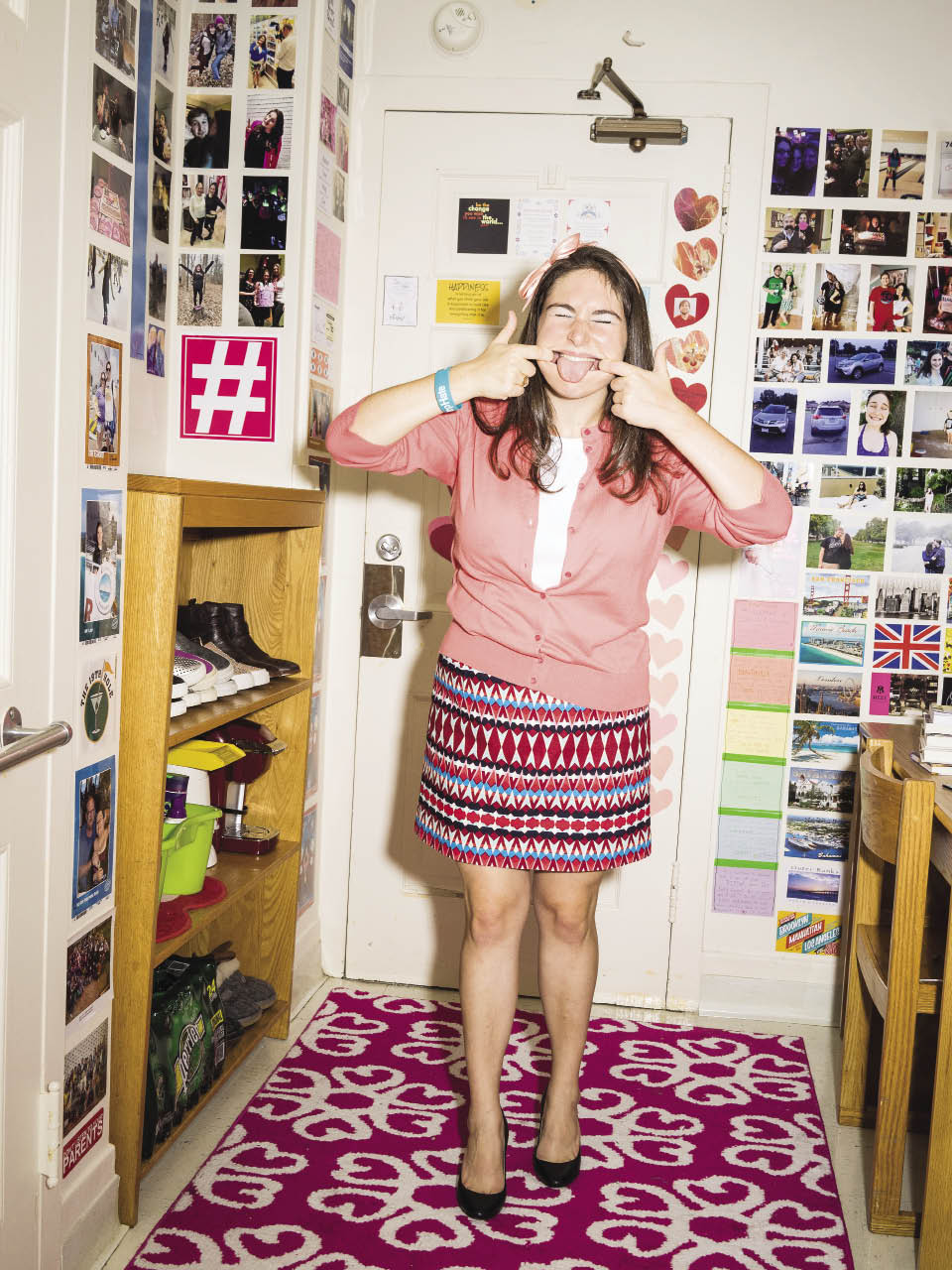Failure is OK. Imperfection is fine. So writes Emily-Anne Rigal ’16 in her new book, FLAWD: How to Stop Hating on Yourself, Others, and the Things That Make You Who You Are (Perigee Books, with illustrator Jeanne Demers, 2015). As the founder of WeStopHate.org, a nonprofit designed to stop bullying by fostering self-esteem, Rigal believes that people who accept themselves—flaws and all—will deflect nastiness directed at them by bullies. Those targeted by bullies, says Rigal, often turn their unhappiness against others. To stop that cycle, she wants people to understand that imperfections are not weaknesses, but strengths that illuminate their distinctive personalities.

Born and raised in Larchmont, N.Y., and Williamsburg, Va., Rigal was bullied during elementary school. She remembers the pain of “being picked on for being fat,” adding, “No one would be my partner in school.”
That experience stayed with her. Eager to help others who found themselves similarly tormented, Rigal, as a high school sophomore, launched WeStopHate as a YouTube channel, featuring teens sharing videos that deal with bullying. WeStopHate has 100 videos, and is one of YouTube’s top 30 channels. For Rigal, having people become self-aware and enhance their self-esteem are intrinsically linked. She says, “You’re not ever going to have people stop saying mean things. WeStopHate is about: how do you deal with it? If someone says something negative, how it affects you is what you can control.”
Rigal, an urban studies major with a sociology concentration, says the Barnard community strongly supports her anti-bullying efforts. In fact, she wrote the book proposal for FLAWD as a sophomore. She was approached by Penguin and was connected to a literary agent through the Athena Leadership Mastermind program of the Athena Center for Leadership Studies. The proposal sold within a month, and Rigal had to consider competing offers from publishers during her finals. Released in August, the book has garnered significant attention; in September, Oprah’s Book Club named it among the “6 Self-Help Books That—Really!—Help!”
Rigal herself has been widely recognized for her anti-bullying activism. Her essay about her experience was a winner in a competition that The New York Times columnist Nicholas Kristof offered about bullying. Newsweek named her one of the 150 Fearless Women in the World. She won a Presidential Volunteer Service Award from Barack Obama. The Today Show filmed its segment about WeStopHate on campus. And then there’s the Nickelodeon HALO award she received from Lady Gaga.
As a member of the Internet generation, Rigal says cyberbullying brings a new set of challenges. “Physical bullying is easier to detect and see,” she acknowledges. “My focus is on the kind of bullying, like cyberbullying, that’s just as hurtful but harder to see.” Rigal adds, “Being a tween or a teenager, everything feels like the end of the world. If you see something, delete it. Don’t engage with it.”
For more on the Athena Center’s Mastermind program, go to athenacenter.barnard.edu/mastermind. •
